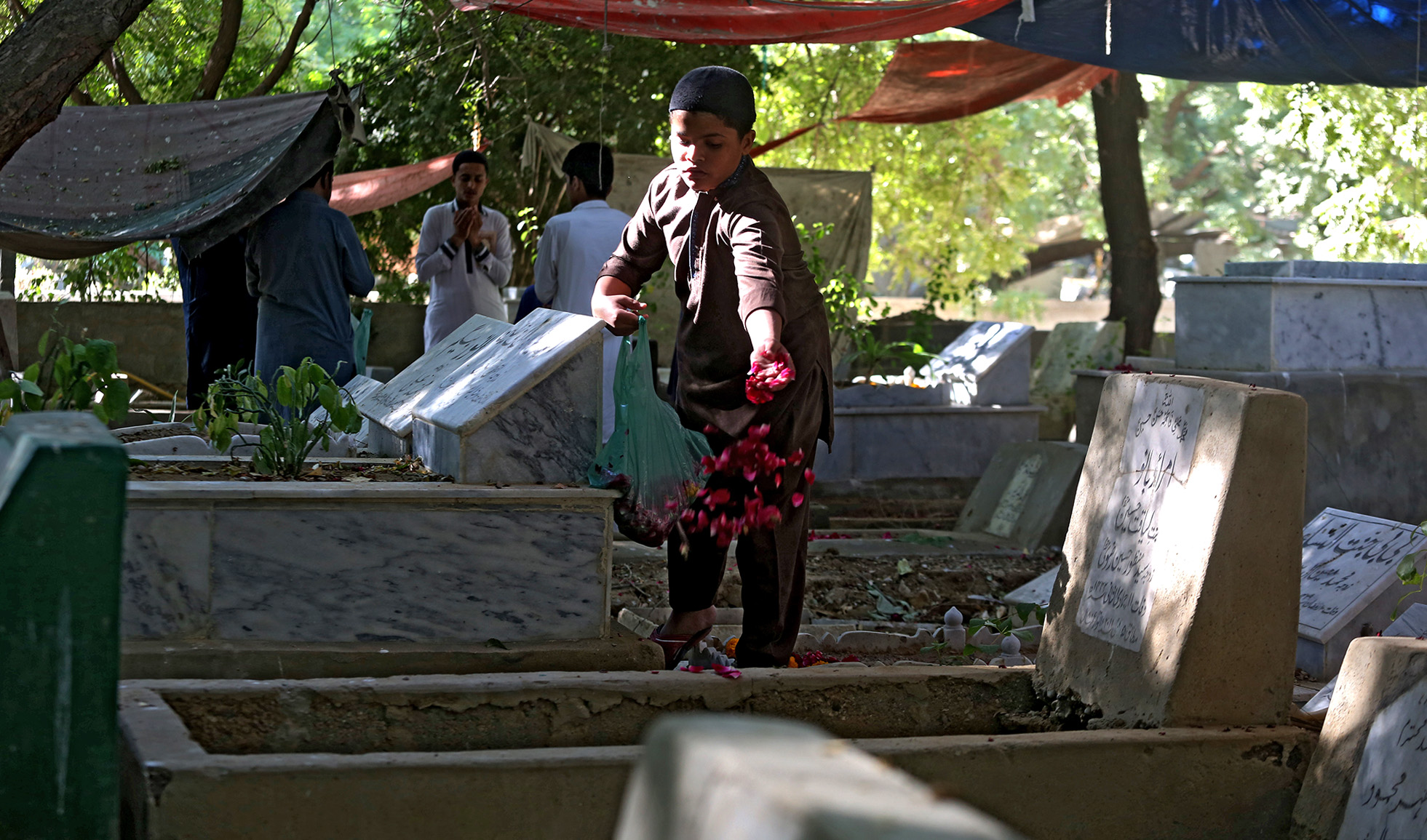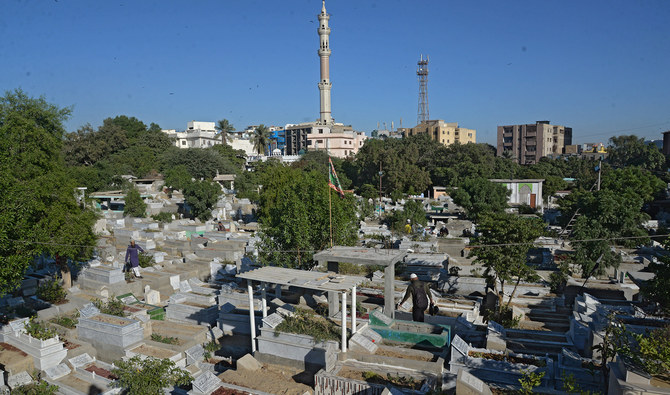KARACHI: In Pakistan’s overcrowded metropolis of Karachi, real estate price tags in posh areas compare to some of the highest in the region, but an underground business in the city’s cemeteries has brought to light discrepancies between the number of burials taking place versus the amount of space available at graveyards, Arab News has found.
In 2020 according to official data available with Arab News, 28,298 people were buried at Karachi Municipal Corporation (KMC) cemeteries-- but nearly 8,000 of them found their final resting places at burial grounds that were already at full capacity.
In 2019, a Tariq Road resident, Muhammad Zeeshan, reported what has come to be known as ‘grave theft’ to authorities when his uncle passed away.
“We went to the nearby PECHS graveyard. The response was usual: ‘There is no space for graves, but if you have a relative, we can dig their grave up for the new deceased in your family,’” he said.
His family agreed, because Zeeshan’s grandfather, who died in 2000, was buried there as well.
But when the family walked up to the grave, to their shock, it was no longer there.
“When we went to see the grave of my grandfather, which we had not visited for a couple of years, we saw a gravestone with a different name on it,” Zeeshan told Arab News.
“They had already resold it. Upon the threat of a police complaint, the gravediggers admitted their mistake and offered us a new grave, and that too, without any fee,” he said.
The seaside megacity of 15 million people has roughly 200 cemeteries, most of them community owned. KMC administers 48 big graveyards and at least six of them — Paposh Nagar, Yaseenabad, Model Colony, Azeempura, Shah Faisal and Qur’angi-6, have been closed for burial due to overcapacity for years, with the last valid notification in February 2017.
A gravedigger at one of the KMC-administered graveyards, who was himself convicted in 2016 for reselling a grave, told Arab News on the condition of anonymity, that a lucrative marketplace was thriving in the buying and selling of graves-- taking advantage of some of the most grief-stricken and desperate moments of loss in an individual’s life.

A child puts flowers at the grave of his relative at Sakhi Hasan graveyard in Karachi on Dec. 4, 2020. (AN photo by S.A. Babar/File)
The gravedigger alleged the business had been running for years with support from city officials, police and local intelligence.
Arab News could not independently verify this.
“Gravediggers keep an eye on different graves and when they notice an unattended grave for a couple of years, they just break the gravestone,” he said.
“After monitoring it for another couple of months, they dig the grave up at night and cover it up,” he continued.
Then the grave is offered to a new buyer.
The practice usually goes unchecked, the gravedigger said, except for rare situations where relatives of the deceased lodge official complaints, as happened in 2016-- and landed him behind bars.
When Karachi-resident Shahnawaz Ali’s father passed away in October, he said he rushed to the Tariq Road Graveyard where he was told the cemetery was full to capacity and closed for new burials.
Then a gravedigger suggested he return in a few hours.
When Ali came back, he was offered a grave for Rs100,000 ($623), despite official rates in the city for community graveyards at roughly Rs7,300.
Eventually, after negotiating, Ali paid Rs35,000 for his father’s grave.
“I had a reference, which worked,” he told Arab News. “One of my acquaintances got a grave at Rs90,000.”
Karachi authorities in 2018 launched two new graveyards at the northern bypass away from the main arteries of the city, but demand remains high for the city center cemeteries, ensuring the central grave-sites remain prime real estate.
KMC spokesman Ali Hassan Sajid denied such a business existed, and said authorities were monitoring graveyards closely for any violations.
“The graveyard department of KMC ensures that no grave is sold out (resold),” Sajid told Arab News.
“The graveyard’s management is allowed to charge Rs7,300 only for a grave, if space is available. Provision of all services is covered in this fee,” he said.
Muhammad Shahid, who is in charge of the Yaseenabad graveyard where 788 people were buried during the last year despite a ban on new burials, said permission had been granted for burials only to people who already had relatives buried in the cemetery.
But people who have recently buried relatives in Yaseenabad tell a different story.
“It was a traumatic situation when my aunt died last month,” Syed Niaz Ali told Arab News on Sunday.
“The most painful part was to arrange Rs40,000 to purchase a grave in the cemetery,” he said. “We just had no option.”















